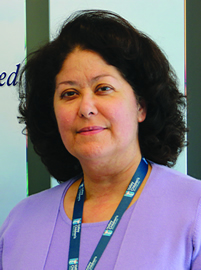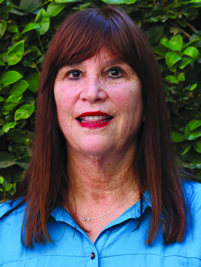Over the past decade or so, the concept of patient- and family-centered care has been gathering momentum, particularly in the practice of pediatric medicine.
Studies increasingly show that when health care administrators, providers, and patients and families work in partnership, the quality and safety of health care improves, costs decrease, and provider and patient satisfaction increase.

A Tuesday afternoon ARHP session will feature a trio of health care professionals — Linda Miranda, RN, BSN, PHN, CPN; Barbara Paliughi, BSN; and Kimberlea Hamilton, PT — all members of the rheumatology team at Valley Children’s Hospital in Madera, Calif. They will discuss how at their institution family-centered care is more than just a concept — it’s part of everyday practice.
“One of the areas where we see the family-centered approach make a huge difference is in medication compliance, which can be a huge problem in managing pediatric patients,” Miranda said. “We take the time to educate the patient and the parents on how their medications work and complement one another, the best way to take them, and we make sure they understand the possible side effects. Sometimes, it just takes a little bit of more information, sometimes, hands-on training, especially with some of our injectable medications, but it works.”
For children with a chronic disease, Miranda said the key to achieving positive outcomes was developing and maintaining a strong partnership between the patients, their families, providers, and case managers. Along with the immediate benefit of improving patients’ compliance to their care plans, the family-centered approach can also provide significant long-term benefits by empowering patients to be more proactive in their health care.
“As they transition to adult care, it’s very important that we’ve prepared them to take care of themselves, to understand their medications and how to take them, to keep their appointments, and be advocates for themselves,” Miranda said. “The more education that we provide to them, the better the compliance is and the better the outcome is for the patient.”
The rheumatology health care team at Valley Children’s Hospital maintains strong relationships with their patients and their families through the hospital’s CARE (Childhood Arthritis and Rheumatic Disease Education) annual day camp.

“We’ve been holding our CARE event for about 10 years now,” Paliughi said. “It’s a day filled with education and fun activities that really strengthens the relationships we share with our kids and their families. We’ve found that this is a much more effective opportunity to educate people than by simply providing pamphlets in the office. When our kids with different diseases meet together and connect with each other, it’s more of a sharing experience for everyone.”
During Tuesday’s session, Paliughi and her colleagues will discuss the organizational and fundraising aspects of the event and encourage other institutions to host their own CARE events. The annual CARE event, she said, is a way to celebrate and, more importantly, reinforce the ongoing support and educational structure that the family-centered care approach provides.
“In addition to the CARE event, we host activities throughout the year that provide a support system and mentorship opportunities connecting patients who have been newly diagnosed with those who have successfully managed their disease and can serve as role models,” Paliughi said. “We also focus on support systems for parents to connect with one another and discuss strategies and resources with our social worker and child psychologist regarding the care of their chronically ill children.”
